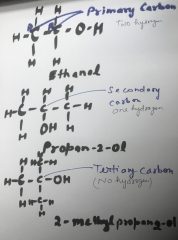Unsure about the strength of hydrofluoric acid (HF)? Find out now! This article will provide answers to your question and explain why HF is either a strong or weak acid depending on its concentrations.
Hydrofluoric acid (HF) can be classified as either a weak or strong acid depending on its concentrations. At high concentrations, HF is considered a strong acid due to its low dissociation constant, while at lower concentrations it is considered a weak acid because of its higher dissociation constant. This article will explain why HF behaves differently in different concentrations and the implications for safety when working with this compound.
Understanding HF’s Protonation and Deprotonation Process.
When HF is dissolved in water, it undergoes a process called protonation and deprotonation. Protonation occurs when the acid donates a proton (H+) to a molecule of water, forming hydronium ions and the fluoride anion. Deprotonation is the opposite process and occurs when hydronium ions are accepted by HF molecules. This dynamic equilibrium between protonated and deprotonated forms of HF determines its strength as an acid at different concentrations.
What is the Strength of Hydrofluoric Acid?
The strength of HF depends on its concentrations; it behaves as a strong acid when it is in higher concentrations and as a weak acid when it is in lower concentrations. At high pH levels, the deprotonation process predominates and HF acts like a weak acid, while at low pH levels, protonation predominates and HF acts like a strong acid. This makes HF unique from other acids because its strength can change depending on the environment.
How Can HF Concentrations Affect Its Acidity?
With HF concentrations, a higher concentration means that more molecules are available to transfer protons. This means that their acidity is stronger and they can donate more protons. On the other hand, lower concentrations of HF mean that fewer molecules are available to transfer protons and therefore, it has weaker acidity and will donate fewer protons. For this reason, HF can act like both a strong and a weak acid based on its concentrations.
How Can You Change the Strength of HF?
The strength of HF can be manipulated by changing the concentration of it in a solution. Increasing the concentration will increase its acidity and make it more likely to donate protons, while decreasing the concentration will decrease its acidity and make it less likely to donate protons. Additionally, increasing temperatures can also cause HF to become more acidic and therefore, stronger.
Other Factors Affecting the Acidity of HF.
In addition to concentration and temperature, the acidity of HF is also affected by its structure. The molecule of hydrofluoric acid structure consists of an oxygen atom bound to a hydrogen atom, plus a fluoride ion that’s attached to the oxygen atom. This creates a highly polar bond which makes it more likely for HF to donate protons than other similar acids with different structures. As such, this factor can influence HF’s strength when other conditions remain the same.

